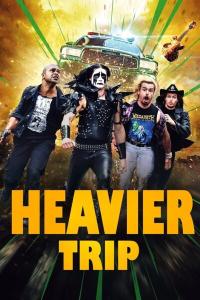Torrent details for "Filipek B. C Initialization Story. A Guide...2022 [andryold1]" Log in to bookmark
Controls:
External index by SiteBot Verified
Category:
Language:
 English
EnglishTotal Size:
3.41 MB
Info Hash:
42d66208a2f4971b8128dec7475be3588922a190
Added By:
Added:
30-12-2022 19:26
Views:
154
Health:

Seeds:
3
Leechers:
0
Completed:
135
Textbook in PDF formatExternally indexed torrent If you are the original uploader, contact staff to have it moved to your account
From basic syntax, constructor and destruction rules, lifetime, and template deduction. Everything you want to know about Modern C techniques related to initialization. C 20 included!
Initialization in C is a hot topic! The internet is full of discussions about best practices, and there are even funny memes on that subject. The situation is not surprising, as there are more than a dozen ways to initialize a simple integer value, complex rules for the auto-type deduction, data members, and object lifetime nuances.
And here comes the book.
Throughout this text, you will learn practical options to initialize various categories of variables and data members in Modern C . More specifically, this text teaches multiple types of initialization, constructors, non-static data member initialization, inline variables, designated initializers, and more. Additionally, you’ll see the changes and new techniques from C 11 to C 20 and lots of examples to round out your understanding.
Learn C from the perspective of C Initialization!
The plan is to explain most (if not all) parts of initialization, learn lots of excellent C techniques, and see what happens under the hood.
The goal of this book is to equip you with the following knowledge
Explain rules about object initialization, including regular variables, data members, and non-local objects.
How to implement special member functions (constructors, destructors, copy/move operations) and when they are helpful.
How to efficiently initialize non-static data members using C 11 features like non-static data member initialization, inheriting, and delegating constructors.
How to streamline working with static variables and static data members with inline variables from C 17.
How to work with container-like members, non-copyable data members (like `const` data members) or move-able only data members, or even lambdas.
What is an aggregate, and how to create such objects with designated initializers from C 20.
The book contains 14 chapters in the following structure:
Chapters 1 to 5 create a foundation for the rest of the book. They cover basic initialization rules, constructors, destructors, and the basics of data members.
Chapter 6 is a short quiz on constructors. You can check your knowledge from the first "part" of the book.
Chapter 7 on Type deduction - auto, decltype, AAA and more.
Chapter 8 describes Non-static Data Member Initialization (NSDMI), a powerful feature from C 11 that improves how we work with data members. At the end of the chapter, you can solve a few exercises.
Chapter 9 discusses how to initialize container-like data members.
Chapter 10 contains information about non-regular data members and how to handle them in a class. You'll learn about const data members, unique_ptr as a data member, and references.
Chapter 11 describes static non-local variables, static objects, various storage duration options, inline variables from C 17, and constinit from C 20.
Chapter 12 moves to C 20 and describes Designated Initializers, a handy feature based on similar thing from the C language.
Chapter 13 shows various techniques like passing strings into constructors, strong typing, CRTP class counter, Copy and swap idiom, self-registering types more.
Chapter 14 is the final quiz with questions from the whole book.
And there are two appendices
Appendix A - a handy guide about rules for compiler-generated special member functions.
Appendix B - answers to quizzes and exercises.
Most sections are completed, but I'm still working on filling two chapters and polishing the quality.
Who is this book for?
The book is intended for beginner/intermediate C programmers who want to learn various aspects of initialization in Modern C (from C 11 to C 20). You should know at least some of the basics of creating and using custom classes. This text is also helpful for experienced programmers who know older C standards and want to move into C 17/C 20










































